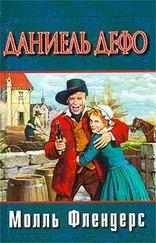Даниэль Дефо - History of the Plague in London
Здесь есть возможность читать онлайн «Даниэль Дефо - History of the Plague in London» весь текст электронной книги совершенно бесплатно (целиком полную версию без сокращений). В некоторых случаях можно слушать аудио, скачать через торрент в формате fb2 и присутствует краткое содержание. Год выпуска: 2014, Издательство: epubBooks Classics, Жанр: Историческая проза, на английском языке. Описание произведения, (предисловие) а так же отзывы посетителей доступны на портале библиотеки ЛибКат.
- Название:History of the Plague in London
- Автор:
- Издательство:epubBooks Classics
- Жанр:
- Год:2014
- ISBN:нет данных
- Рейтинг книги:4 / 5. Голосов: 1
-
Избранное:Добавить в избранное
- Отзывы:
-
Ваша оценка:
- 80
- 1
- 2
- 3
- 4
- 5
History of the Plague in London: краткое содержание, описание и аннотация
Предлагаем к чтению аннотацию, описание, краткое содержание или предисловие (зависит от того, что написал сам автор книги «History of the Plague in London»). Если вы не нашли необходимую информацию о книге — напишите в комментариях, мы постараемся отыскать её.
History of the Plague in London — читать онлайн бесплатно полную книгу (весь текст) целиком
Ниже представлен текст книги, разбитый по страницам. Система сохранения места последней прочитанной страницы, позволяет с удобством читать онлайн бесплатно книгу «History of the Plague in London», без необходимости каждый раз заново искать на чём Вы остановились. Поставьте закладку, и сможете в любой момент перейти на страницу, на которой закончили чтение.
Интервал:
Закладка:
Here we may observe, and I hope it will not be amiss to take notice of it, that a near view of death would soon reconcile men of good principles one to another, and that it is chiefly owing to our easy situation in life, and our putting these things far from us, that our breaches are fomented, ill blood continued, prejudices, breach of charity and of Christian union so much kept and so far carried on among us as it is. Another plague year would reconcile all these differences; a close conversing with death, or with diseases that threaten death, would scum off the gall from our tempers, remove the animosities among us, and bring us to see with differing eyes than those which we looked on things with before. As the people who had been used to join with the church were reconciled at this time with the admitting the dissenters to preach to them, so the dissenters, who, with an uncommon prejudice, had broken off from the communion of the Church of England, were now content to come to their parish churches, and to conform to the worship which they did not approve of before. But, as the terror of the infection abated, those things all returned again to their less desirable channel, and to the course they were in before.
I mention this but historically: I have no mind to enter into arguments to move either or both sides to a more charitable compliance one with another. I do not see that it is probable such a discourse would be either suitable or successful; the breaches seem rather to widen, and tend to a widening farther, than to closing: and who am I, that I should think myself able to influence either one side or other? But this I may repeat again, that it is evident death will reconcile us all: on the other side the grave we shall be all brethren again. In heaven, whither I hope we may come from all parties and persuasions, we shall find neither prejudice nor scruple: there we shall be of one principle and of one opinion. Why we cannot be content to go hand in hand to the place where we shall join heart and hand without the least hesitation, and with the most complete harmony and affection,—I say, why we cannot do so here, I can say nothing to; neither shall I say anything more of it, but that it remains to be lamented.
I could dwell a great while upon the calamities of this dreadful time, and go on to describe the objects that appeared among us every day,—the dreadful extravagances which the distraction of sick people drove them into; how the streets began now to be fuller of frightful objects, and families to be made even a terror to themselves. But after I have told you, as I have above, that one man being tied in his bed, and finding no other way to deliver himself, set the bed on fire with his candle (which unhappily stood within his reach), and burned himself in bed; and how another, by the insufferable torment he bore, danced and sung naked in the streets, not knowing one ecstasy [248] Madness, as in Hamlet, act iii. sc. 1.
from another,—I say, after I have mentioned these things, what can be added more? What can be said to represent the misery of these times more lively to the reader, or to give him a perfect idea of a more complicated distress?
I must acknowledge that this time was so terrible that I was sometimes at the end of all my resolutions, and that I had not the courage that I had at the beginning. As the extremity brought other people abroad, it drove me home; and, except having made my voyage down to Blackwall and Greenwich, as I have related, which was an excursion, I kept afterwards very much within doors, as I had for about a fortnight before. I have said already that I repented several times that I had ventured to stay in town, and had not gone away with my brother and his family; but it was too late for that now. And after I had retreated and staid within doors a good while before my impatience led me abroad, then they called me, as I have said, to an ugly and dangerous office, which brought me out again; but as that was expired, while the height of the distemper lasted I retired again, and continued close ten or twelve days more, during which many dismal spectacles represented themselves in my view, [249] "Represented themselves," etc., i.e., presented themselves to my sight.
out of my own windows, and in our own street, as that particularly, from Harrow Alley, of the poor outrageous creature who danced and sung in his agony; and many others there were. Scarce a day or a night passed over but some dismal thing or other happened at the end of that Harrow Alley, which was a place full of poor people, most of them belonging to the butchers, or to employments depending upon the butchery.
Sometimes heaps and throngs of people would burst out of the alley, most of them women, making a dreadful clamor, mixed or compounded of screeches, cryings, and calling one another, that we could not conceive what to make of it. Almost all the dead part of the night, [250] "Dead part of the night," i.e., from midnight to dawn. Compare,"In the dead waste and middle of the night."Hamlet, act i. sc 2.
the dead cart stood at the end of that alley; for if it went in, it could not well turn again, and could go in but a little way. There, I say, it stood to receive dead bodies; and, as the churchyard was but a little way off, if it went away full, it would soon be back again. It is impossible to describe the most horrible cries and noise the poor people would make at their bringing the dead bodies of their children and friends out to the cart; and, by the number, one would have thought there had been none left behind, or that there were people enough for a small city living in those places. Several times they cried murder, sometimes fire; but it was easy to perceive that it was all distraction and the complaints of distressed and distempered people.
I believe it was everywhere thus at that time, for the plague raged for six or seven weeks beyond all that I have expressed, and came even to such a height, that, in the extremity, they began to break into that excellent order of which I have spoken so much in behalf of the magistrates, namely, that no dead bodies were seen in the streets, or burials in the daytime; for there was a necessity in this extremity to bear with its being otherwise for a little while.
One thing I cannot omit here, and indeed I thought it was extraordinary, at least it seemed a remarkable hand of divine justice; viz., that all the predictors, astrologers, fortune tellers, and what they called cunning men, conjurers, and the like, calculators of nativities, and dreamers of dreams, and such people, were gone and vanished; not one of them was to be found. I am verily persuaded that a great number of them fell in the heat of the calamity, having ventured to stay upon the prospect of getting great estates; and indeed their gain was but too great for a time, through the madness and folly of the people: but now they were silent; many of them went to their long home, not able to foretell their own fate, or to calculate their own nativities. Some have been critical enough to say [251] "Have been critical," etc., i.e., have claimed to have knowledge enough to say.
that every one of them died. I dare not affirm that; but this I must own, that I never heard of one of them that ever appeared after the calamity was over.
But to return to my particular observations during this dreadful part of the visitation. I am now come, as I have said, to the month of September, which was the most dreadful of its kind, I believe, that ever London saw; for, by all the accounts which I have seen of the preceding visitations which have been in London, nothing has been like it, the number in the weekly bill amounting to almost forty thousands from the 22d of August to the 26th of September, being but five weeks. The particulars of the bills are as follows: viz.,—
Читать дальшеИнтервал:
Закладка:
Похожие книги на «History of the Plague in London»
Представляем Вашему вниманию похожие книги на «History of the Plague in London» списком для выбора. Мы отобрали схожую по названию и смыслу литературу в надежде предоставить читателям больше вариантов отыскать новые, интересные, ещё непрочитанные произведения.
Обсуждение, отзывы о книге «History of the Plague in London» и просто собственные мнения читателей. Оставьте ваши комментарии, напишите, что Вы думаете о произведении, его смысле или главных героях. Укажите что конкретно понравилось, а что нет, и почему Вы так считаете.












